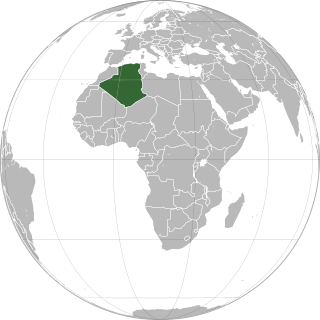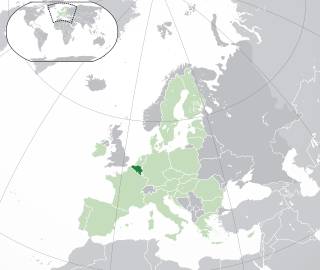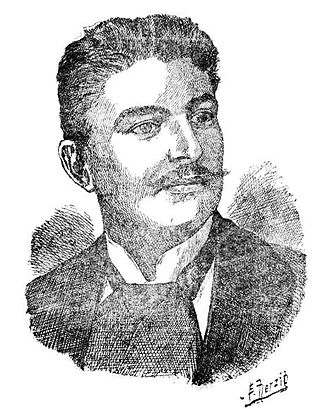Antisemitism is hostility to, prejudice towards, or discrimination against Jews. This sentiment is a form of racism, and a person who harbours it is called an antisemite. Though antisemitism is overwhelmingly perpetrated by non-Jews, it may occasionally be perpetrated by Jews in a phenomenon known as auto-antisemitism. Primarily, antisemitic tendencies may be motivated by negative sentiment towards Jews as a people or by negative sentiment towards Jews with regard to Judaism. In the former case, usually presented as racial antisemitism, a person's hostility is driven by the belief that Jews constitute a distinct race with inherent traits or characteristics that are repulsive or inferior to the preferred traits or characteristics within that person's society. In the latter case, known as religious antisemitism, a person's hostility is driven by their religion's perception of Jews and Judaism, typically encompassing doctrines of supersession that expect or demand Jews to turn away from Judaism and submit to the religion presenting itself as Judaism's successor faith — this is a common theme within the other Abrahamic religions. The development of racial and religious antisemitism has historically been encouraged by anti-Judaism, though the concept itself is distinct from antisemitism.
Antisemitism has increased greatly in the Arab world since the beginning of the 20th century, for several reasons: the dissolution and breakdown of the Ottoman Empire and traditional Islamic society; European influence, brought about by Western imperialism and Arab Christians; Nazi propaganda and relations between Nazi Germany and the Arab world; resentment over Jewish nationalism; the rise of Arab nationalism; and the widespread proliferation of anti-Jewish and anti-Zionist conspiracy theories.

The Jewish Defense League (JDL) is a Jewish far-right religious-political organization in the United States and Canada, whose stated goal is to "protect Jews from antisemitism by whatever means necessary". It has been classified as "a right wing terrorist group" by the FBI since 2001, and is designated a hate group by the Southern Poverty Law Center. According to the FBI, the JDL has been involved in plotting and executing acts of terrorism within the United States. Most terrorism watch groups classify the group as inactive as of 2015.

The History of the Jews in Algeria refers to the history of the Jewish community of Algeria, which dates to the 1st century CE.

Louis Thomas McFadden was a Republican member of the United States House of Representatives from Pennsylvania, serving from 1915 to 1935. A banker by trade, he was the chief sponsor of the 1927 McFadden Act, which rechartered the Federal Reserve System in perpetuity, liberalized branch banking for national banks and increased competition between member and non-member banks. He is known for his antisemitic conspiracy theories, which eventually saw him lose his seat in the House of Representatives.
This is a list of countries where antisemitic sentiment has been experienced.

The history of the Jews in Belgium goes back to the 1st century CE until today. The Jewish community numbered 66,000 on the eve of the Second World War but after the war and The Holocaust, now is less than half that number.
Antisemitism —prejudice, hatred of, or discrimination against Jews— has experienced a long history of expression since the days of ancient civilizations, with most of it having originated in the Christian and pre-Christian civilizations of Europe.
Antisemitic incidents escalated worldwide in frequency and intensity during the Gaza War, and were widely considered to be a wave of reprisal attacks in response to the conflict.

The Anti-Defamation League (ADL), formerly known as the Anti-Defamation League of B'nai B'rith, is a New York-based international Jewish non-governmental organization and advocacy group that specializes in civil rights law and combats antisemitism and extremism.
The Jewish community in Sweden has been prevalent since the 18th century. Today Sweden has a Jewish community of around 20,000, which makes it the 7th largest in the European Union. Antisemitism in historical Sweden primarily manifested as the confiscation of property, restrictions on movement and employment, and forced conversion to Christianity. Antisemitism in present-day Sweden is mainly perpetrated by far-right politicians, neo-Nazis, and Islamists.
Antisemitism in France has become heightened since the late 20th century and into the 21st century. In the early 21st century, most Jews in France, like most Muslims in France, are of North African origin. France has the largest population of Jews in the diaspora after the United States—an estimated 500,000–600,000 persons. Paris has the highest population, followed by Marseilles, which has 70,000 Jews. Expressions of antisemitism were seen to rise during the Six-Day War of 1967 and the French anti-Zionist campaign of the 1970s and 1980s. Following the electoral successes achieved by the extreme right-wing National Front and an increasing denial of the Holocaust among some persons in the 1990s, surveys showed an increase in stereotypical antisemitic beliefs among the general French population.

Max Régis was a French journalist and politician who promoted anti-semitism in French Algeria during the late 1890s. He was elected mayor of Algiers in 1898 but was soon dismissed from office. He campaigned unsuccessfully for election as a national deputy in 1901 as an antisemitic candidate. He lived the rest of his life in obscurity.
Belgium is a European country with a Jewish population of approximately 35,000 out of a total population of about 11.4 million. It is among the countries experiencing an increase in both antisemitic attitudes and in physical attacks on Jews.

The 1934 Constantine riots erupted in the Algerian city of Constantine against the local Jewish population, rooted in the different manner in which Jews and Muslims had been treated in Algeria by the French colonial government. It is uncertain what the exact cause of the riots was, though various accounts suggest that the riots were triggered by an altercation between a Jewish man and some Muslims at the Sidi Lakhdar Mosque in Constantine. Multiple sources report that 25 Jews and 3 Muslims died over the course of the three-day riot, and several Jewish establishments were pillaged. The events have also been described as a pogrom.

The Jerusalem Declaration on Antisemitism (JDA) is a document meant to outline the bounds of antisemitic speech and conduct, particularly with regard to Zionism, Israel and Palestine. Its creation was motivated by a desire to confront antisemitism and by objections to the IHRA Definition of Antisemitism, which critics have said stifles legitimate criticism of the Israeli government and curbs free speech. The drafting of the declaration was initiated in June 2020 under the auspices of the Van Leer Institute in Jerusalem by eight coordinators, most of whom were university professors. Upon its completion the declaration was signed by about 200 scholars in various fields and released in March 2021.
Unions latines (UL) was an early 20th century fascist Algerian political party.
Le Petit Oranais was an anti-Semitic newspaper operated by the Jules Molle in Algeria. For many years Le Petit Oranais was published with a swastika on its front page. The paper promoted the Unions latines (UL) party, predominant in the municipal politics of Oran until Molle's death in 1931.
Jonathan Harry Samuel Arkush is a British barrister and Jewish community leader. Arkush served as the 47th President of the Board of Deputies of British Jews from 17 May 2015 to 13 May 2018.

Antisemitism in France is the expression through words or actions of an ideology of hatred of Jews on French soil.









